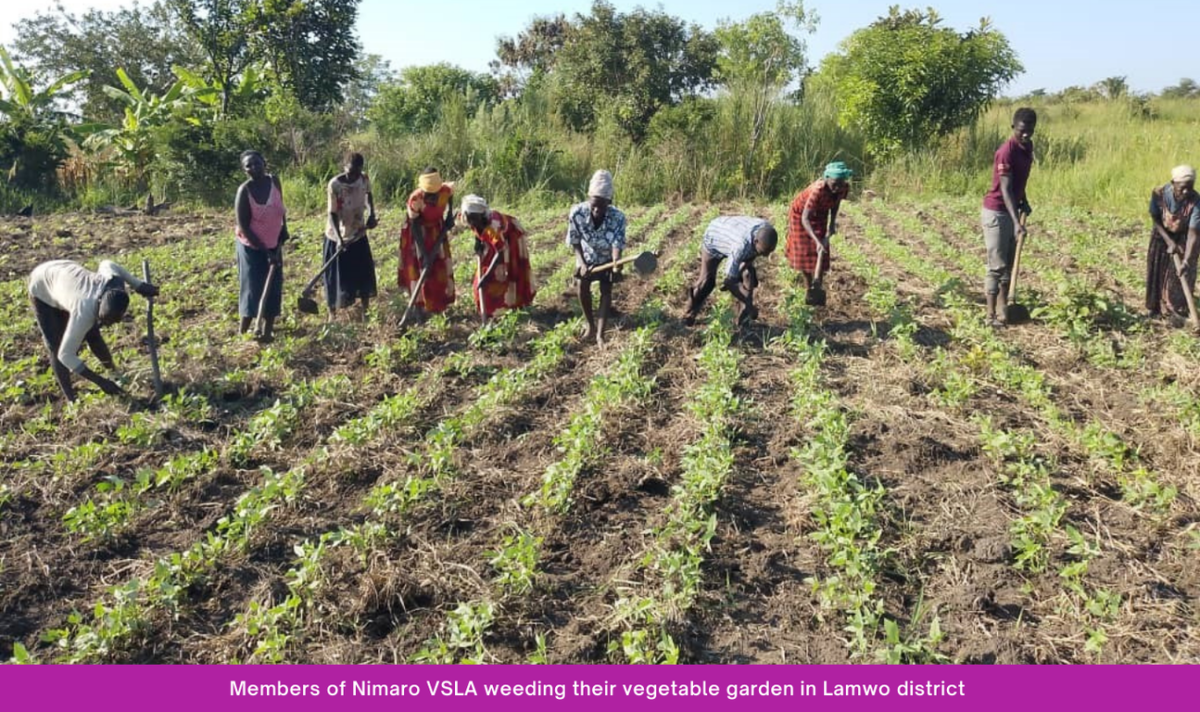A remarkable project is taking root in Northern Uganda, bringing hope, resilience, and sustainable livelihoods to refugee and host communities. The “Building Climate Resilience for Refugee and Host Communities in Northern Uganda” project, implemented by VEDCO and Action on Poverty, is more than just an agricultural initiative—it’s a movement toward self-reliance, dignity, and unity.
The Palabek Refugee Settlement is home to thousands of South Sudanese refugees who have faced immense hardships, from displacement and trauma to food insecurity and climate-related challenges. This project is tackling these issues head-on, equipping individuals with the skills and resources needed to rebuild their lives.
One of the project’s key innovations is the creation of farmer groups that bring together both refugee and host communities. By working side by side, participants are not only improving their food security but also fostering social cohesion and peaceful coexistence.
Growing a Foundation for the Future
This project goes beyond simply providing food—it empowers people to take control of their futures. Over 1,200 individuals have participated in hands-on training programs, gaining knowledge in climate-smart agriculture, post-harvest handling, and the nutritional benefits of indigenous vegetables. These aren’t just theoretical lessons; they’re life-changing skills that are already making a difference.
Imagine a family struggling to put food on the table. Now, picture that same family equipped with the knowledge and resources to grow their own vegetables, store them efficiently, and even sell surplus produce for income. That’s the transformation happening here.
After just one year, the project has seen a remarkable surge in vegetable production:
- 71.2% of beneficiaries are now growing indigenous vegetables, up from just 24.3% at the start.
- Post-harvest losses have plummeted from 70% to just 12%, thanks to training on better storage and handling techniques.
- Access to quality seeds has skyrocketed from 2.14% to 68%, giving farmers the tools to secure long-term food production.
Empowering Communities
Quality seeds are essential for successful farming, and this project has taken bold steps to ensure availability. 57 local seed producers have been trained to cultivate and distribute high-quality seeds, not only improving crop yields but also generating income for their families. These producers are more than farmers—they are agents of change, spreading knowledge and resources within their communities.
Trained “diet champions” are teaching families about the benefits of eating locally grown vegetables. This has led to community leaders actively promoting local agriculture and improved nutrition and vegetable consumption has risen from 63.6% to 72%.
Building Financial Resilience and Community Strength
Financial independence is a cornerstone of empowerment. The project has facilitated the creation of 40 Village Savings and Loan Associations (VSLAs), providing a platform for individuals to save money, access small loans, and invest in their futures. These groups have collectively saved over 102 Million Shillings, demonstrating the community’s commitment to building a more secure tomorrow. The VSLAs are not just about money; they’re about fostering community spirit and mutual support.

Hope is Growing!
Beyond direct participants, the project’s impact continues to grow. Through the sharing of seeds and vegetables, an additional 4,824 individuals have benefited, spreading the project’s influence far beyond its initial reach.
This project is proving that sustainable solutions can transform lives. By empowering individuals with knowledge, resources, and a supportive community, we are not just growing food—we are growing hope, dignity, and a future filled with possibilities.
The journey continues, but one thing is clear: resilience is taking root in Palabek, and its impact will be felt for generations to come.

